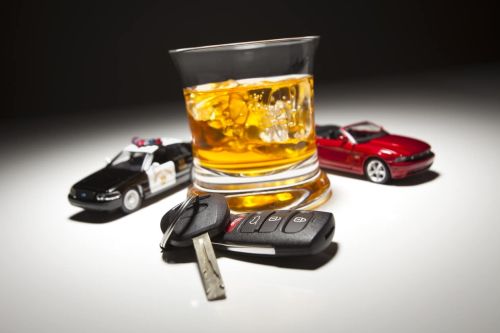Menu



North Carolina has strict DWI laws, and the consequences are even more severe if you were found guilty of drinking and driving several times in the past. Critically, if you’ve been convicted of multiple DWIs, you could face heavier fines, longer jail time, and a lengthier license suspension period for any subsequent offenses. Depending upon how many prior offenses you’ve been charged with - and whether you are a habitual offender - your license might even be permanently revoked.
If you're facing these charges, it's critical to consult with a multiple DWI lawyer who understands the complexities of repeat offenses under NC traffic violations law.
The consequences of a repeat DWI can depend upon how many previous convictions you have and the level of the offense. Typically, the more priors on your record, the more severe the penalties that will be imposed. Prior DWIs are treated as aggravating factors, which can lead to enhanced sentencing if you are convicted.
A first, second, and third DWI within a period of ten years can be charged as misdemeanors. A misdemeanor DWI can result in a minimum of 24 hours jail time or community service up to 36 months in prison. You may also incur fines ranging from $200-$4,000 and be required to participate in a substance abuse program.
A fourth DWI within 10 years is a felony in North Carolina. The sentence imposed is based on a variety of factors, including any aggravating circumstances in the case and your BAC level. Importantly, if convicted of this offense you must serve at least 12 months active even if the balance of your sentence is probationary.
Driving while impaired is one of the most serious NC traffic violations, with consequences that escalate based on the number of previous convictions. It can also affect your standing in the NC traffic violations points system, which may result in license suspension or revocation.
In addition to the legal penalties, there are also collateral consequences if you’ve been convicted of multiple DWIs. For example, you might be required to install an ignition interlock device in your vehicle. Your driving privileges may even be revoked for a certain amount of time, or you may permanently lose your license.
A DWI within seven years of the previous conviction can result in license revocation for one year, without the possibility of obtaining a hardship license. Being found guilty of a second DWI within three years from the prior conviction can result in license revocation for a period of four years. After two years, you may be able to apply for a conditional restoration of your license.
Importantly, even just one DWI conviction will result in a criminal record. This can make it difficult to find housing and seek certain employment. It can also impact child custody issues, immigration status, your auto insurance rates, and professional licensing matters.
Under North Carolina law, a person commits the offense of habitual impaired driving if they have been convicted of three or more DWIs within 10 years of the current offense. In such cases, the fourth offense is charged as a Class F felony, which carries a minimum jail sentence of one year. Significantly, the jail term imposed under the habitual offender statute cannot be suspended.
Other penalties a habitual offender may face can include required participation in a substance abuse program, monetary fines, and permanent license revocation. In addition, if you were driving on a revoked license due to a previous DWI, the vehicle driven when the offense occurred is subject to forfeiture. The police can seize your vehicle at the time of the arrest - before your case even goes to trial. Forfeiture can also be ordered by a judge upon conviction.
Because the penalties are so severe, it’s critical to seek the help of a multiple DWI lawyer who has deep experience navigating NC traffic violations cases.
There are a number of defense strategies a skillful criminal defense attorney can implement if you are facing charges for a subsequent offense after multiple DWIs. Generally, the same defenses applied in a first DWI may also be used for second, third, and subsequent offenses. But it’s essential to understand that the stakes are much higher if you have multiple convictions.
Common defenses in a case involving multiple DWIs can include:
Mitigating factors may be raised to potentially reduce the penalties in your case. For instance, completing a substance abuse program or seeking mental health treatment can show the court you are taking proactive measures to address the issues underlying the DWI. A BAC that was only slightly over the .08% limit (as opposed to being significantly over the legal threshold) may also be a factor that can help to lessen any sentence imposed.
In North Carolina, driving while impaired is one of the most serious NC traffic violations and can have a lasting impact on your driving record. A single DWI adds points to your license, but multiple convictions can lead to much harsher consequences - including long-term or permanent license suspension. Accumulating too many points under the NC traffic violations points system may also result in higher insurance premiums and mandatory driving courses. Understanding how DWIs affect your point total is key to protecting your driving privileges.
If you’ve been arrested for a DWI and have prior convictions, it’s vital to have a skillful criminal defense attorney by your side who can fight for the best possible outcome in your case. The Johnston County criminal defense attorneys at Reece & Reece, Attorneys at Law are committed to providing reliable representation for a broad scope of criminal offenses in North Carolina, including DWIs. Call (919) 300-1249 to schedule a consultation and learn how we can help.
© 2025 Reece & Reece, Attorneys
Legal Disclaimer | Privacy Policy
Law Firm Website Design by The Modern Firm